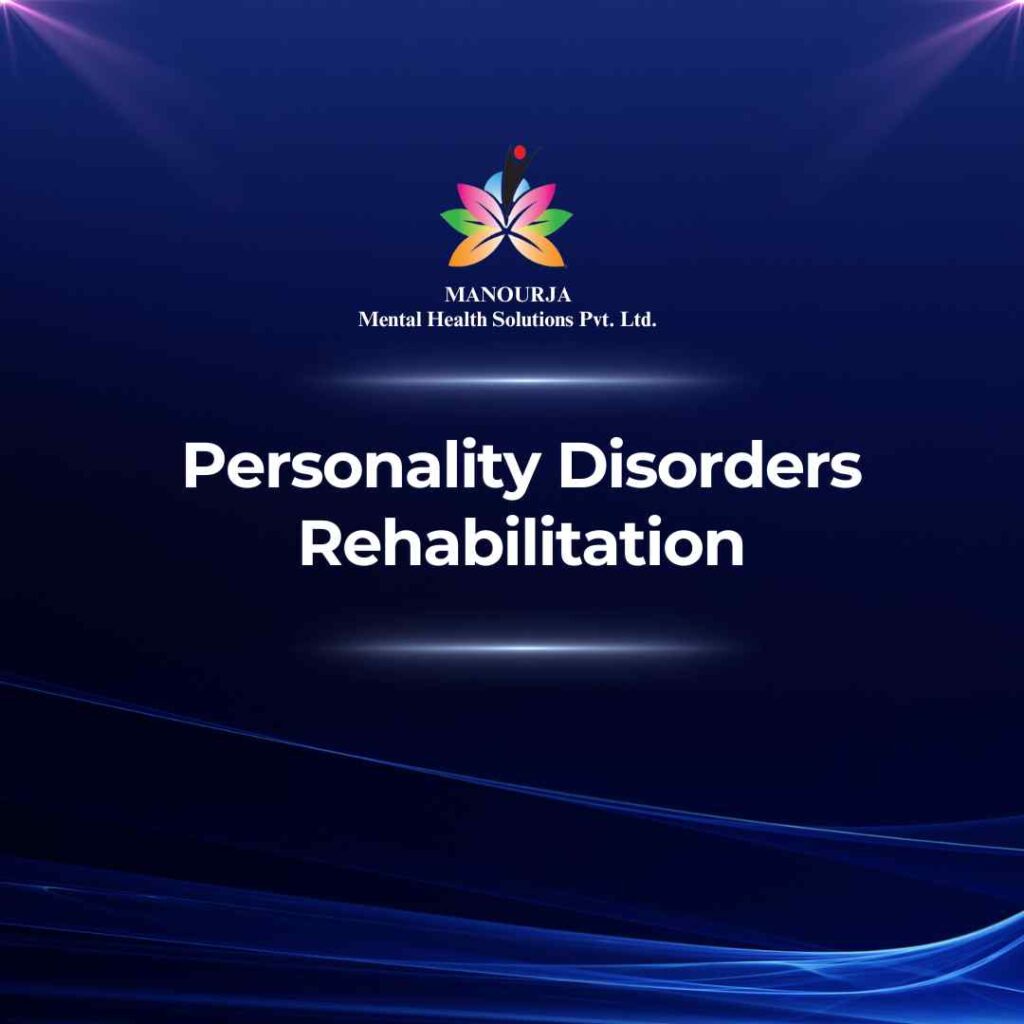Personality Disorders Rehabilitation

Personality disorders represent a class of mental health conditions characterized by enduring maladaptive patterns of behavior, cognition, and inner experience. These patterns are exhibited across many contexts and deviate markedly from those accepted by the individual’s culture. Correctly identifying the signs and choosing the appropriate form of psychosocial rehabilitation—outpatient (OPD) or inpatient (IPD)—is crucial for effective management and treatment.
Signs and Symptoms of Personality Disorders
Individuals and family members should look for signs and symptoms that typically involve significant disruptions in self-identity, emotional patterns, and a persistent pattern of maladaptive behaviors and thoughts that differ from the expectations of society. These may include:
- Chronic Interpersonal Difficulties: Struggling to form or maintain close relationships.
- Distorted Thinking Patterns: Persistent negative, paranoid, or distorted thinking affecting the individual’s perception of reality.
- Emotional Instability: Fluctuating wildly or inappropriate emotional responses.
- Impulsivity: Making hasty decisions that have a lasting negative impact.
- Compulsive Behavior: Engaging in behaviors excessively, to the point where they interfere with daily life.
- Social Withdrawal or Aggressiveness: Avoiding social interactions or displaying consistently hostile behaviors that disrupt relationships and occupational performance.
Factors Influencing the Decision Between OPD and IPD
- Severity and Control of Symptoms: IPD may be necessary for individuals exhibiting behaviors that pose a danger to themselves or others or when their symptoms significantly interfere with their daily functioning.
- Support System: Availability of a strong and supportive environment can make OPD a viable option, allowing individuals to remain integrated within their community.
- Response to Outpatient Treatment: If symptoms persist despite ongoing outpatient treatment, or there is deterioration, IPD might be considered to provide more intensive care and supervision.
Role of Psycho-social Rehabilitation in Treating Personality Disorders
Psycho-social rehabilitation for personality disorders aims to help individuals manage symptoms, reduce maladaptive behaviors, and enhance their functioning within society by:
- Improving Behavioral Patterns: Teaching skills to modify detrimental behaviors and develop healthier social interactions.
- Enhancing Emotional Regulation: Providing tools to better manage and respond to emotional stress.
- Developing Personal Skills: Helping individuals understand and change long-standing patterns of behavior.
Techniques and Approaches Used at MANOURJA
At MANOURJA, the rehabilitation of individuals with personality disorders involves a variety of evidence-based techniques:
- Dialectical Behavior Therapy (DBT): Especially effective for borderline personality disorder, DBT focuses on mindfulness, emotion regulation, distress tolerance, and interpersonal effectiveness.
- Schema Therapy: Helps individuals to identify and change complex maladaptive patterns of thinking and behavior.
- Cognitive Analytic Therapy (CAT): Integrates theories derived from cognitive psychotherapies and psychoanalytic approaches in a structured way.
- Group Therapy: Utilizes the group setting to practice new skills, offer mutual support, and confront behaviors in a safe environment.
Steps in the Rehabilitation Process at MANOURJA
- Initial Assessment: Comprehensive evaluation to understand the specific nature and impact of the personality disorder.
- Personalized Treatment Plan: Development of a tailored treatment plan that addresses both the symptoms and their psychosocial impacts.
- Implementation of Treatment: Engaging the individual through scheduled therapy sessions and skill-building activities.
- Continuous Monitoring: Regularly assessing progress and making necessary adjustments to the treatment plan.
- Support and Aftercare: Providing ongoing support to ensure sustainable management of the condition.
Effective treatment and psychosocial rehabilitation can significantly improve the quality of life for individuals with personality disorders, helping them to navigate their complexities and reintegrate into society more successfully. The comprehensive approach at MANOURJA equips individuals with the necessary tools for long-term management and recovery.
“Recovery is a journey that begins with a step toward understanding yourself better, paving the way for meaningful change.”
